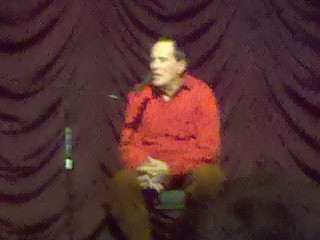A Quote by Glenn Ligon
There is an imagined thing called black culture. But culture is a construction. It is learned behavior, not innate. The black American experience is the American experience.
Related Quotes
There's no reason why you can't say "August Wilson, playwright" even though all of my work, every single play, is about black Americans, about black American culture, about the black experience in America. I write about the black experience of men, or I write about black folks. That's who I am. In the same manner that Chekhov wrote about the Russians, I write about blacks. I couldn't do anything else. I wouldn't do anything else.
'Smart Funny and Black' is basically a live black pop culture game show that I created. We have a live band. We have two contestants that we call 'blacksperts.' They come on stage and compete in games that I've created that test their knowledge of black culture, black history, and the black experience.
I did not disregard my culture, if I did, it was the white American culture, and I accepted my true culture, when I accepted Mohammed Ali, because this is a black name, Islam is the black man's religion, and so I would like to say, that I would like to clarify that point that I reclaimed my real culture, and that's being a black man and wearing a black name with a black body, and not a white name, so I would never say that I didn't disown my culture.
There is a problem in America. An Irish or Polish American can write a story and it's an American story. When a Black American writes a story, it's called a Black story. I take exception to that. Every artist has articulated to his own experience. The problem is that some people do not see Blacks as Americans.
I don't really identify with America, I don't really feel like an American or part of the American experience, and I don't really feel like a member of the human race, to tell you the truth. I know I am, but I really don't. All the definitions are there, but I don't really feel a part of it. I think I have found a detached point of view, an ideal emotional detachment from the American experience and culture and the human experience and culture and human choices.
I think people respond to truth. 'Straight Outta Compton' made $60 million over the weekend, right? That's not just a black audience. 'Empire' grew every single week. That's not just a black audience. Black culture is American culture, you know what I mean? They're becoming more and more one in the same.
While I might not have a specific experience that is fully American, there is still a knowledge, something that I logically understand as a black woman and a black woman who is existing in America and a black woman who is in the diaspora that are just known quantities that I think anyone can relate to who is black.






































